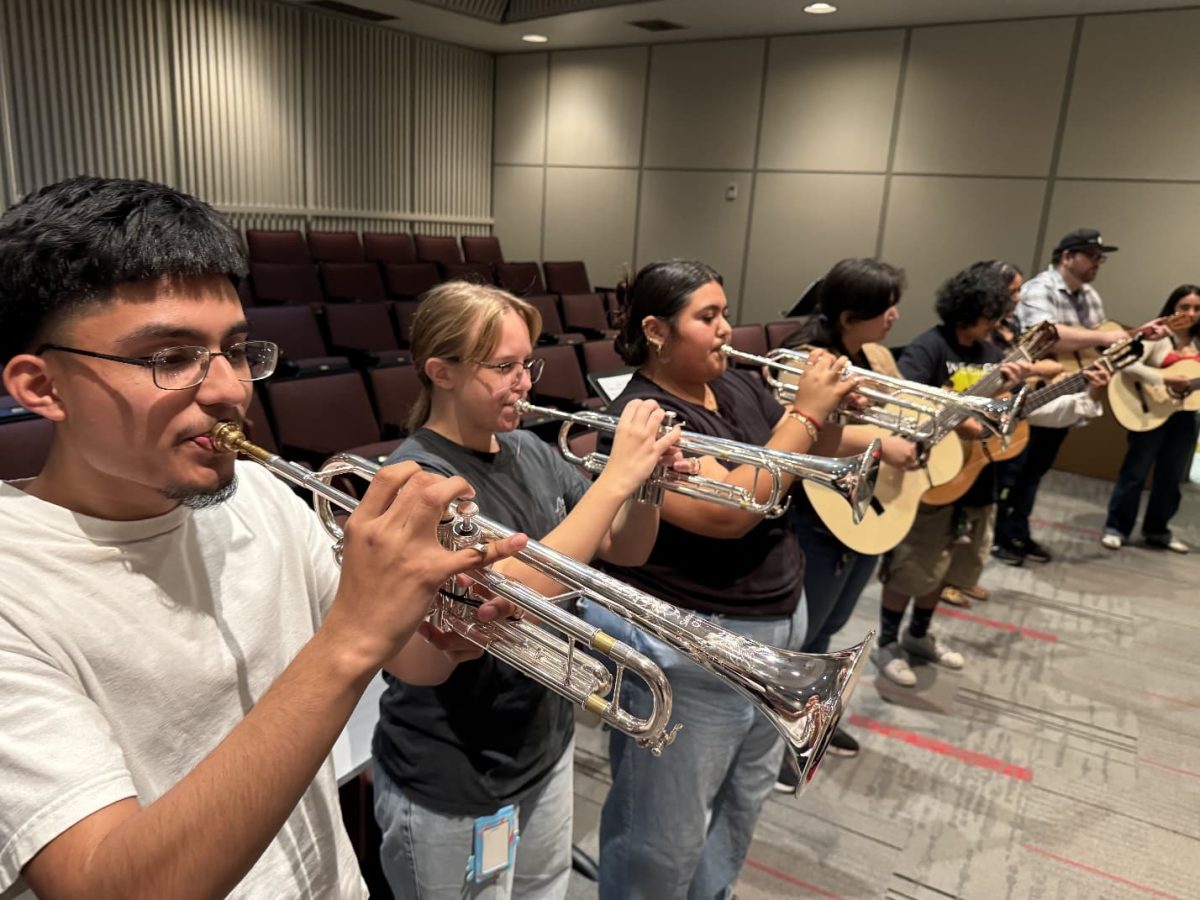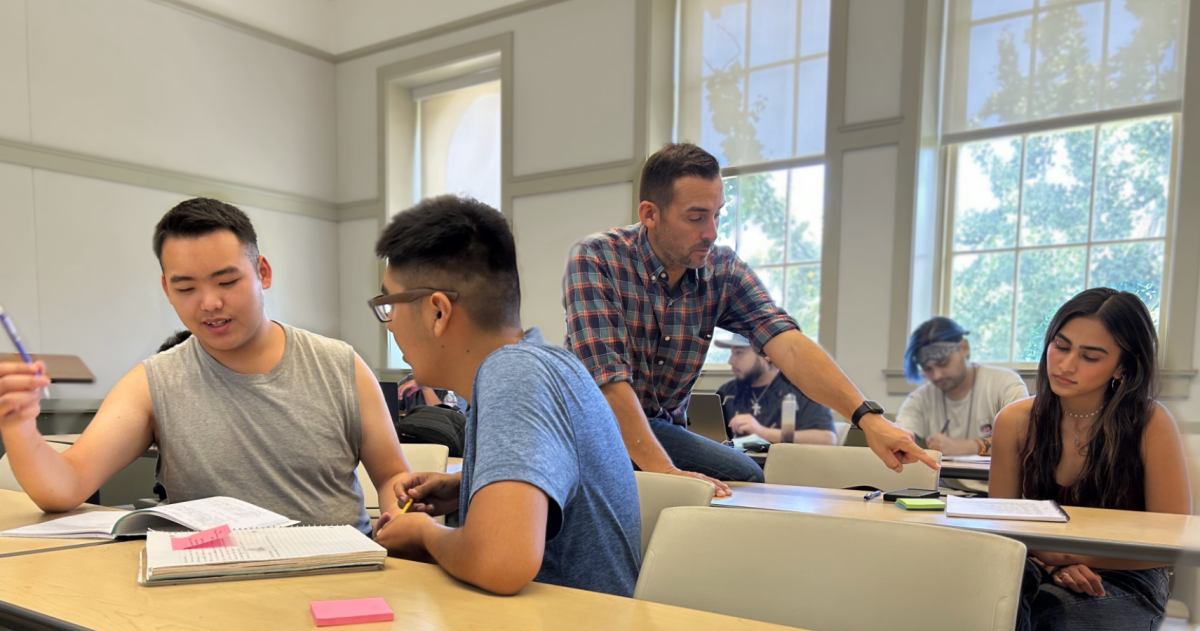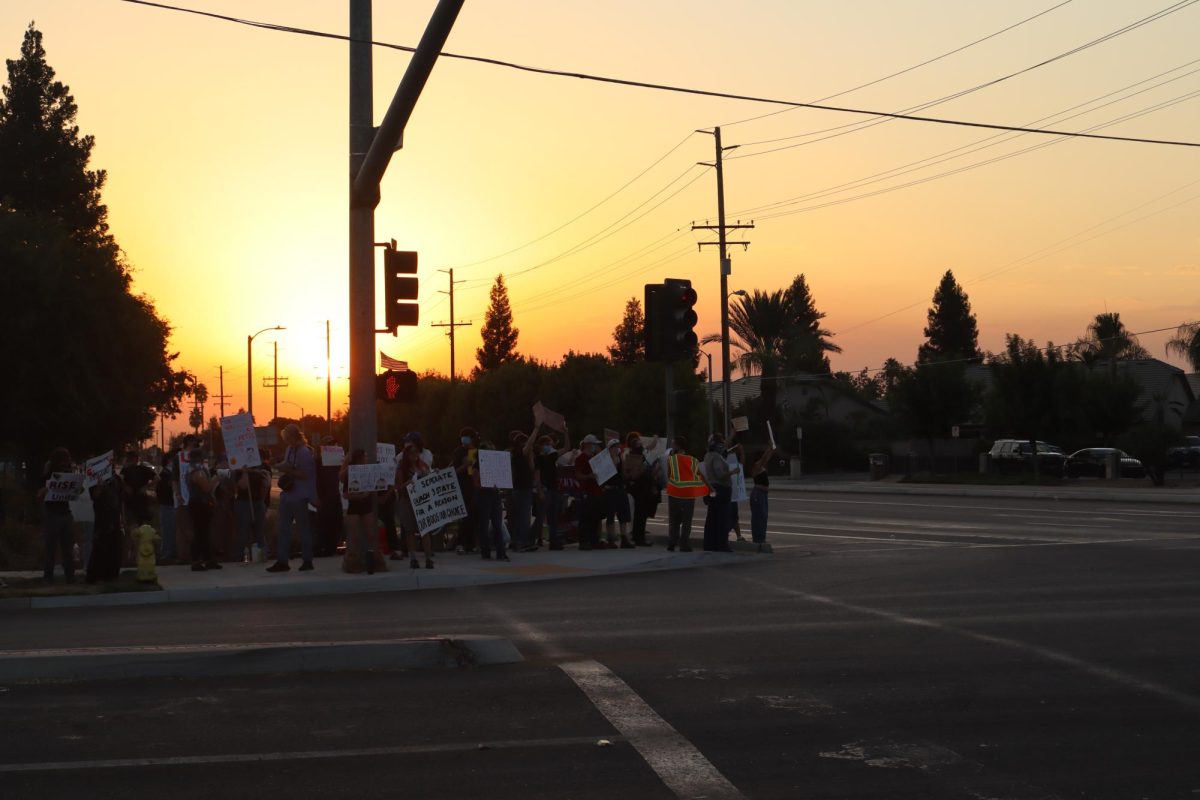The flags of every country hang from the ceiling of the cafeteria at Fresno City College. These flags represent the many students at FCC who have left their native lands to seek higher education.
At the same time, these students have left behind the people they have known for most of their lives.
While these students struggle to keep up with their studies, they must deal with bombardments of news.
This news includes turmoil and catastrophe in their homelands that have become so commonplace – the devastation from the earthquake and tsunami in Japan, the bloody civil war raging in Libya, recent political upheavals in Egypt and Tunisia, and the slaughters in Mexico. They live with constant worry over the state of their home country and their loved ones.
“Too much anxiety has the ability to compromise any student’s performance as well as diminish one’s overall quality of life,” said Sharon Muha Psy.D., of FCC’s Psychological Services. “If a person is experiencing significant anxiety that is compromising their academic success, ability to work, or personal life it is a sign that professional assistance could be beneficial.”
Auguste Yao Kouadio, a native of a small West African nation known as the Ivory Coast, lives with anxiety. “It’s painful to focus on studying, when I’m thinking about the safety of my family,” Kouadio said. In the last decade, he has seen his country crumble due to a civil war.
Another FCC student, Mebrahtu Gebremedhin, knows all too well the feeling of coping with bad news from home. Gebremedhin grew up in Ethiopia, another African country which has seen its share of turmoil over the years. He says he lives in fear of what could happen to his loved ones at home.
Sociology major Diana Corral has lived in the U.S. for much of her life, but she is still very much connected to her home in Mexico. “I’m very concerned with the safety of my loved ones because they live in Sinaloa, one of the most dangerous states in Mexico,” said Corral. “Many drug cartels are there and are used to recruit young people to kill for them and sell drugs. They kidnap people and hold them for ransom.”
For film major, Omar Ali, it’s a challenge to wake up everyday and thrive in a foreign country without any of his family members. Only two years ago, Ali left his beloved country of Yemen and came to the U.S. Ali’s family is spread out through Saudi Arabia and Yemen and the recent turmoil in the Middle East is terrifying.
SERVICES FOR CONCERNED FOREIGN STUDENTS
These students live with a high level of fear and anxiety that they will never see their loved ones again. For reassurance, some turn to FCC’s Psychological Services which provides help for students who may be dealing with a crisis abroad or who may be concerned about their loved ones.
“If a student has concerns that are beyond the scope of the department, such as concerns regarding support for family oversees, our staff makes every effort to provide the student with referrals for agencies that may be of assistance,” said Sharon Muha Psy.D. “We provide emotional support and assist students with improving their well being.”
COPING
Sharon Muha, Psy.D. also said that the effect of foreign turmoil on international students will vary from individual to individual. “Some students may experience significant mental health concerns such as anxiety and depression. Whereas, others may be able to cope effectively,” said Dr. Muha. Meanwhile, the students devise their own ways of coping with the uncertainties. Kouadio said he is often on the Internet checking the news on his country.
Like Kouadio, Gebremedhin constantly checks the news from his country. “I always want to know what is going on. That’s my home. It’s a part of me. My soul is buried there,” said Gebremedhin
Through modern technology, Gebremedhin can often check on the well being of his loved ones. Still Gebremedhin says his family in Ethiopia is more concerned about him. “They watch the news, and they see what is going on in the U.S.[the economic downturn] and they worry about me,” he said.
THE TURMOIL AT HOME
Kouadio said his home country, Ivory Coast, has been shaky for the last 11 years. “We’ve been struggling to find peace. It started with a rebellion and has turned to civil war. There are leadership issues and conflicts between Muslims and Christians,” he said.
During this time of instability in the Ivory Coast, Kouadio has seen his six nieces killed or raped. Moreover, he must contend with uncertainties surrounding his 19 year old son who is in the midst of the turmoil.
Gebremedhin recalls receiving devastating news from his country, Ethiopia, where Muslim extremists were killing monks in a monastery. The tragedy took a toll on Gebremedhin who had been to the monastery many times and was familiar with the monks. “I know how they live. They pray for everybody, not just for Ethiopia. I cried all night when I heard the news,” said Gebremedhin.
Corral is worried about the drugs cartels and the havoc they’re creating in Mexico. She is also concerned about the many children in Mexico who leave school early to work, but barely make enough to survive. “There’s inflation, and the cost of living doesn’t match the pay of the poorest people. The police officers are corrupt and so is the government,” said Corral. “I worry that nothing will ever change in Mexico. The poor will stay poor and the rich will stay rich.”
Ali said that despite the recent protests in the Middle East, he feels fortunate that the protests in Yemen haven’t been as violent as in other Middle Eastern Countries.
Still the challenge of being away from home is difficult to ignore. With only a student visa, Ali can’t work, and with the high cost of tuition for international students, he must treasure every penny. Ali relies on his relatives abroad to provide for his living. He said, “I try to spend as little as possible. I don’t want to bother them.”
HOPES FOR THE FUTURE
Even though they live with immense fear, the students are hopeful for a better future.
Kouadio said he hopes to bring his son to the U.S. and works hard to provide him a bright future. But the paper work is overwhelming and the immigration fees daunting.
As the only male adult in his family, Kouadio believes it is his moral obligation to take care of everybody. “I have to provide them with what they need. I want them to have a system of life and to be independent,” said Kouadio.
Even with so much to be concerned about, Kouadio says fear will not run his life. “My grandpa says sometimes to be better, we have to be worse,” said Kouadio. “One day we will get better. One day I will be part of the solution.”
Kouadio dreams of a day when the people of his country can go back to their normal lives. “I hope someday people won’t wake up hearing guns shots and fearing for their lives every day,” he said
For Gabremedhin, a good future would involve opening a business in his country when he finishes his education.
“I have to give back to my country. It’s the right thing to do,” he said. “I wish there was more opportunity for young people. They go to other countries because they can’t find jobs.”
Corral said the continued turmoil in Mexico has made it hard for her to be optimistic. “As long as there’s a demand for the drugs, I feel there will always be this ongoing turmoil in Mexico,” Corral said. “I can’t do anything to change it. Everyone who has tried gets murdered.”
Ali is very hopeful about the future of his country. He relishes
the opportunity to speak about the courage the youth in Yemen have displayed during the protests. “What’s happening is making me a proud Arab. It’s a breath of fresh air,” said Ali. “They are fighting for freedom and liberty. This will change the picture for the next hundred years.”
After his education, Ali hopes to return to Yemen. “I want to live there. I want to be part of the change,” said Ali. “There’s a lot we can do. It lies in the hands of the youth. I want to be part of that.”






